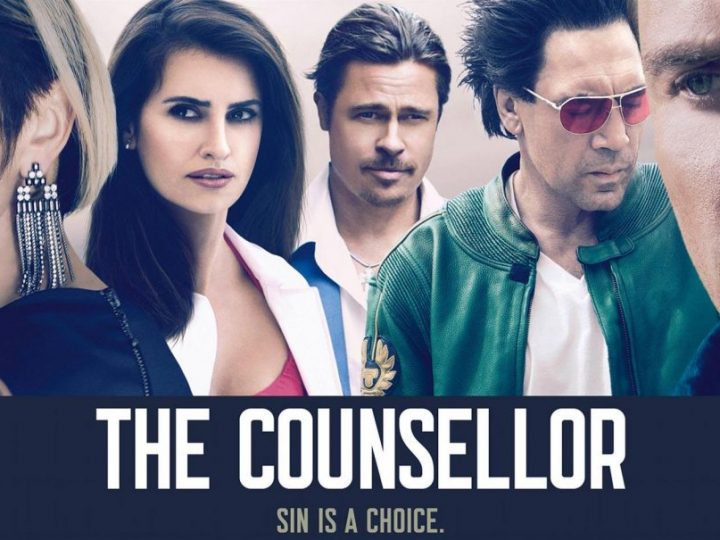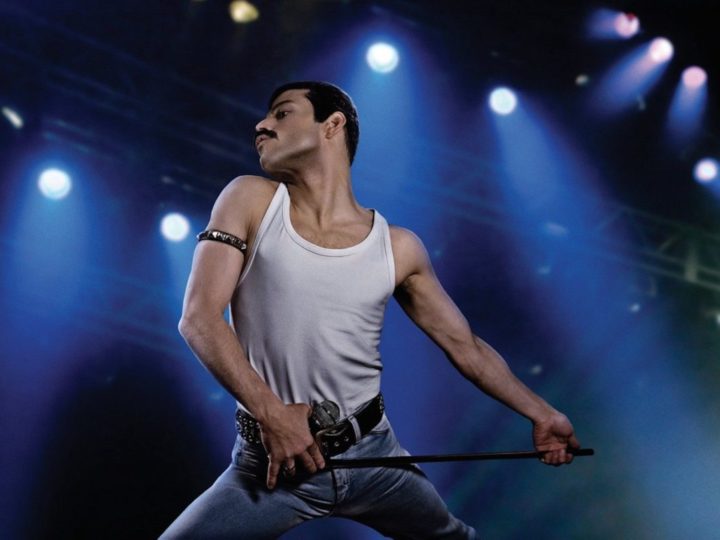 After “The Counselor”, Ridley Scott lets go of mobsters stories to go back to Peplum, a genre that made his success. The director gets to grips with the Peplum genre; with his own interpretation. ( see the Premiere Event for the movie here)
After “The Counselor”, Ridley Scott lets go of mobsters stories to go back to Peplum, a genre that made his success. The director gets to grips with the Peplum genre; with his own interpretation. ( see the Premiere Event for the movie here)
As a matter of fact, Peplum movies became quite trendy these past few years in Hollywood as it guarantees strong-arm stars and great box-office numbers. However, this film has nothing to do with the last “Immortals” or “The Clash of the Titans”. You have the same huge decors and costumes but as Ridley Scott has already shown us with Gladiator, his movies go further with more ambitions. They are true technical challenges with striking performances.
Another interesting comparison would be with “Noah” from Darren Aronofsky. It is another biblical story starring Russell Crowe, director’s favorite actor, which shows the religious message more with several symbols and moral speeches than “Exodus: Gods and Kings”. Indeed, “Exodus” is much more settled into a realistic screenwriting and directing.
Passionate about History, Ridley Scott seems to put a very special care on the realism of his movie.

First of all, the realism occurs in his directing:
Egypt at the time of Pharaohs is the perfect occasion for showing spectacular and gigantic sets inside the palace or outside in the middle of the desert. Far from the cardboard cut-outs of the sixties like seen in “Ben-Hur” or “Spartacus”… Nevertheless, “Exodus” does belong to this peplum legacy. Ambitious in its set construction, most of them have been entierely built in order to avoid using green screen technology. This choice enables to offer a breath-taking depth field of vision that completely legitimates the use of 3D.
A true success where each shot shows a real perspective in “three dimensions” like one shot consists of actually three.
Also important to mention, the photography is quite impressive when you realize how many details there are and the width of the sets. The photography offers a quality of image way too rare in 3D movies nowadays.
So the movie is very realistic with its care for details. Costumes, sets and the images development make all the estheticism of the film.
In the interpretation:
A great story demands a great actor. Ridley Scott was sure about his choice and he was right. Christian Bale offers a performance up to his talent. His strength lies on his relentlessness to prepare for his character which allows him to completely embody Moses (for this role, Christian Bale read 3 times the Old Testament- See all the details revealed at the Press Conference). This meticulous preparation could be found in the complexity of his character. His performance gave a lot of interest to the film.
Therefore, it is a great role for Christian Bale adding up to his prestigious filmography.

How about the emotion?
With no doubt, the work on the directing and the performances gives a great realism to the film but maybe at the expense of the dramatic tension of the story.
All throughout the film, you get more and more frustrated. You feel excluded from what he main character could feel. Indeed, Moses shoulders many responsibilities; releasing the Hebrew people from persecution, negotiating to avoid the Divine punishment falling on the Egyptians, and top of that being a good husband and father. Great responsibilities that should make his life miserable and painful. But those difficulties are not that displayed. Incredibly strong mentally, not to say unshakeable, Moses goes on his way and you follow him, intrigued, without knowing how he feels. It is like Ridley Scott asks you to have faith in his character without really believing in him.
So, you stay aside with a passive look like Moses’ wife when he claims he is charged with a divine mission or Joshua (Aaron Paul) when he observes Moses speaking to himself, to a vision, to a God messenger.
At the end, there is a certain distance coming up between the characters and the following events. This situation often occurs in Ridley Scott movies; when the History, the destiny gets bigger than the man who undertakes it. But this is especially true in this one, because the divine plan totally overtakes Moses, maybe too much. Ridley Scott shows well how brutal and fierce were the 10 plagues inflicted to Egyptians. However, do you feel bad and compassionate for the Egyptians or feel the doubts of Moses and share the will of freedom for his people? No, you actually remain neutral to the situation, as the development of the story was unfinished and remains shaky.
You also have this with Ramses character. This character hesitates between being impulsive but with empathy, temperamental but understanding and clear-headed. The complexity of the characters is interesting, but since all the historical events have to be told in details, there is not so much space left to develop the characters’ depth. You are wondering about some incoherences and shaky situations. One of the best example is Aaron Paul’s character. You are sure he could have a great potential in the story but instead he is set back.(for now? is it a subtil teasing for a number 2?)
Why is it so obvious in this movie? Maybe because the director didn’t have the time to say all he wanted in this version. We will have to see the Director’’s cut version to say. But this is not the first time that director shows us this habit of not being able to tell all the story in the studio version of the movie. He is able to only in his very long version like he has some worries to go straight to the essential.

A realism towards religion….
One of the aspects of the story that the director really cared about, was to well contextualize the believes of that time. Many religions coexisted and many surperstitions dictated behaviours. At the beginning of the movie, Moses is represented in a very modern way, sceptical and with an enlightened vision of the situation in Egypt.
Diplomatic and compassionate, Moses is most of all, a wise strategist and negotiator. That gives a lot of credit to him as a leader. Moses depicted by Ridley Scott is not exceptional because of his blinding faith to preach God’s will but because of his leadership and his will to think by himself. Those qualities are especially put forward by the director in this movie. Perplexed and skeptical, Moses doesn’t mind to question God’s decisions. As a matter of fact, very few direct quotes from the Bible are done in the film. Historical facts are preferred. It gives a more universal perspective to the movie, a more neutral one that related to to our modern societies.
Putting forward pragmatism against faith, seems to be the position of the director: to prefer once again reality than biblical tale.
Still a must see to make your own opinion about it!



